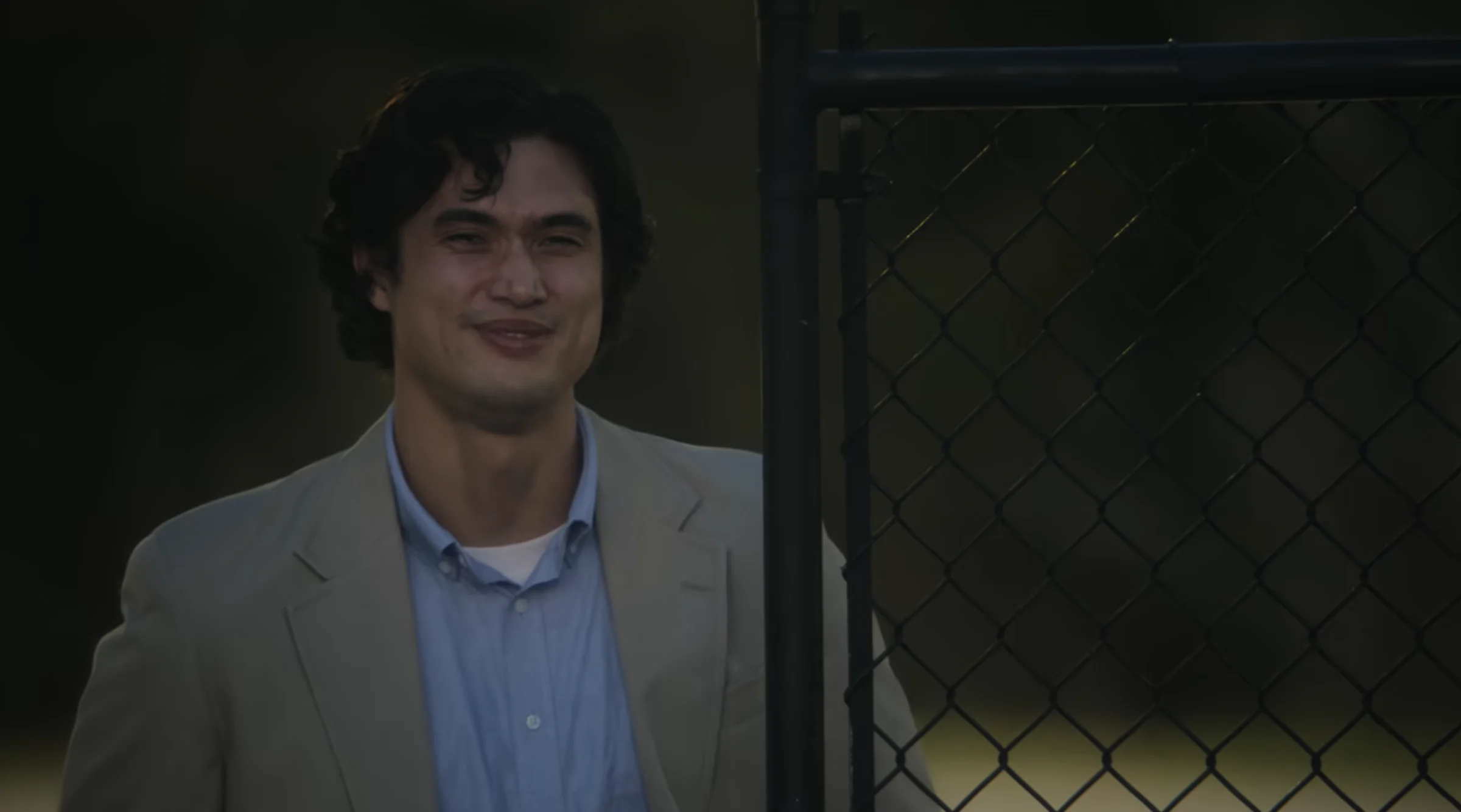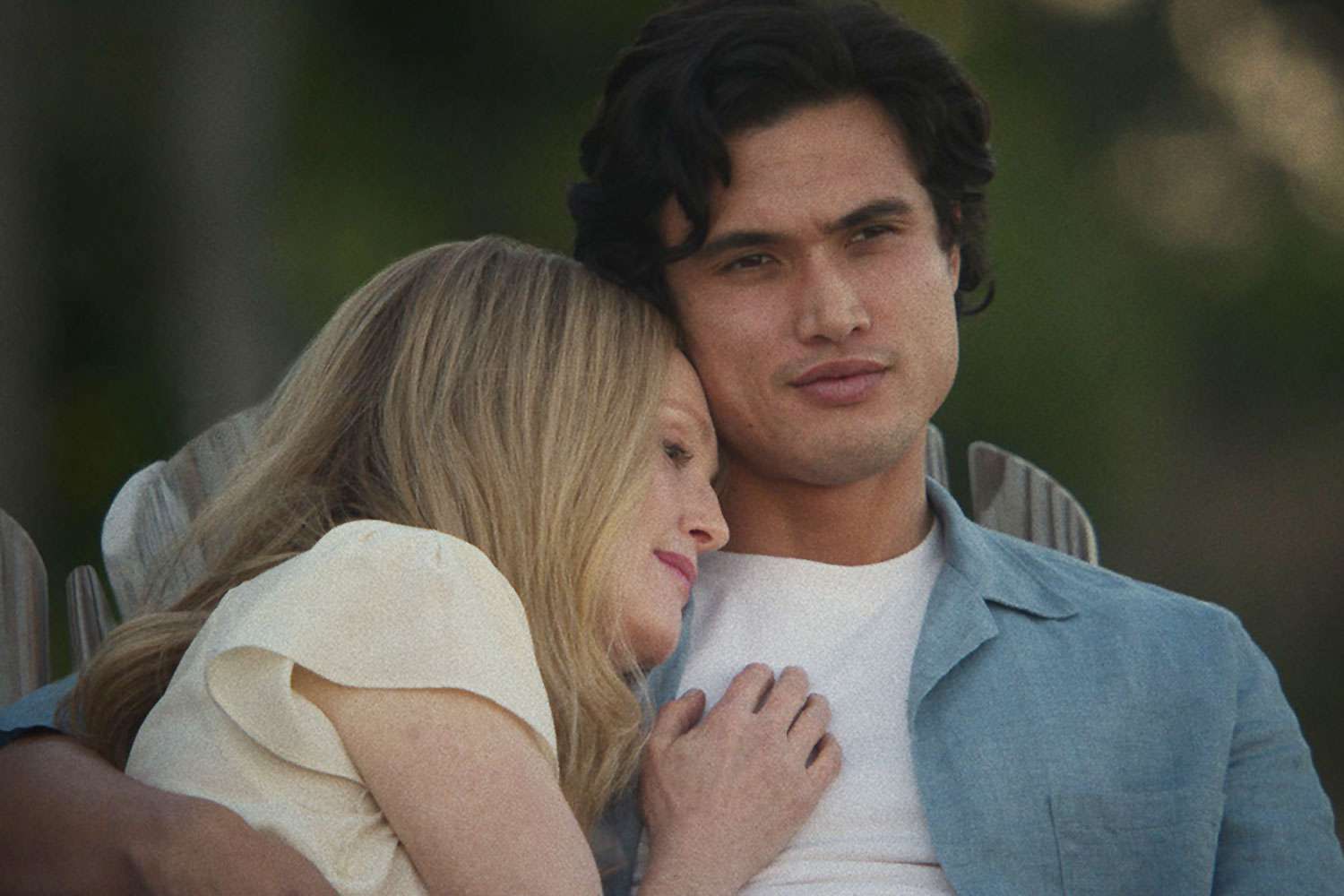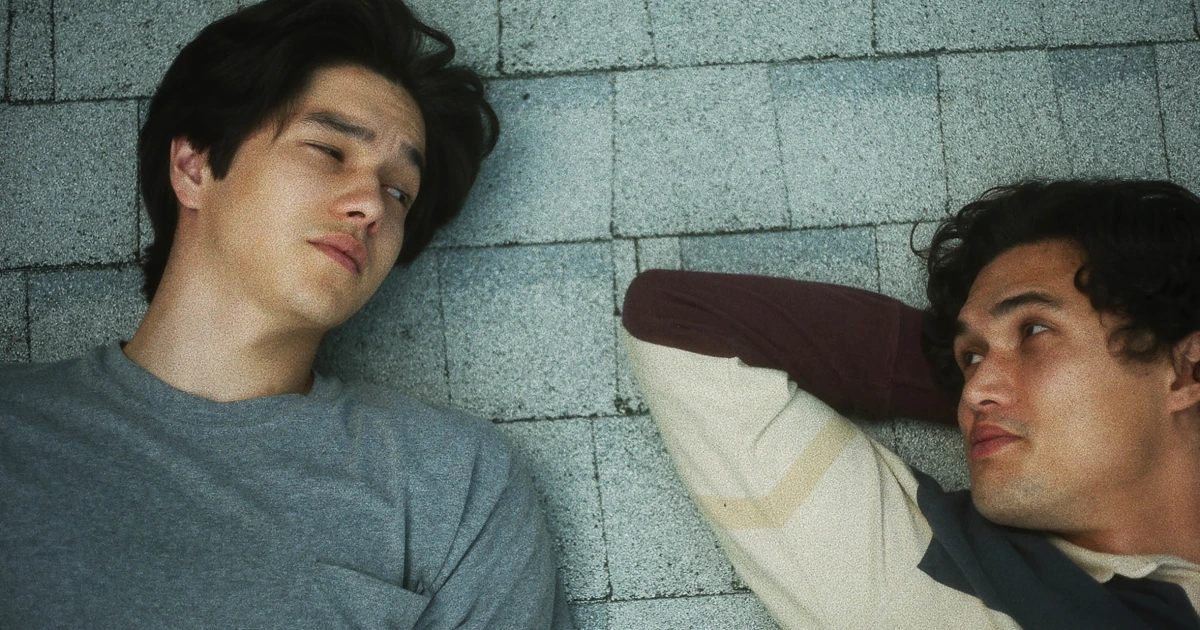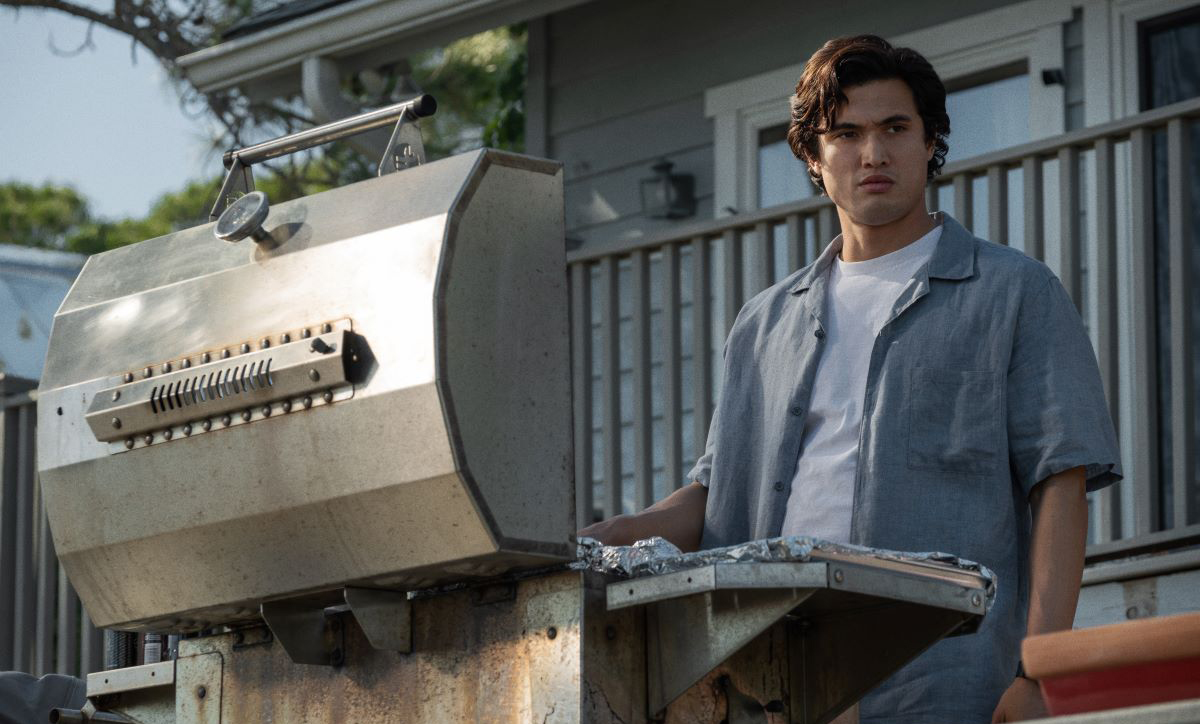If you’ve been following RepresentASIAN Project’s socials, you know we have a bit of a thing for Charles Melton lately. And that’s not to say we didn’t appreciate his role as Reggie Mantle in Riverdale (which Melton lovingly referred to as his “Juliard”), but we definitely began to look at the Korean American actor a little bit differently after watching his breakout performance in May December.
In the Todd Haynes film, Melton plays Joe Yoo, a man who was groomed and abused at the age of 13 by a woman several years his senior (played by Julianne Moore). The film takes place two decades, a marriage, and two children later where the story simmers to the surface again when a movie star (played by Natalie Portman) comes to town to research the family as she prepares to play Moore’s character in an upcoming biopic. The story is “loosely” based on the true story of elementary school teacher Mary Kay Letourneau and sixth grader Vili Fualaau, whose sexual relationship dominated the tabloids, airwaves, and water-cooler conversations of the late 1990s (note: post-release of the film, Fualaau said he was never contacted by Haynes, Melton and screenwriter Samy Burch and called May December a “rip-off” of his story).

Melton’s performance has received rave reviews from critics, earning him a Gotham award for outstanding supporting performance and a Golden Globe nomination. He was, however, notably snubbed for an Oscar.
In our first edition of The Group Chat, contributing editor Sadaf Ahsan and staff writer Rebecca Gao discuss Melton’s acting chops and how race and class can impact our perception of who’s the victim and who’s the offender.
Sadaf Ahsan: Okay, let’s start off. What did you think of May December?
Rebecca Gao: I loved it. I love Todd Haynes already and this is so Todd Haynes-y, so I was like, ‘this is great!’ But then also the Charles Melton of it all is so amazing. When people were like, ‘He’s going to win an Oscar…this is the best performance of the year,’ I was like, no way. I have seen that man on Riverdale. He doesn’t deliver. He’s the second Reggie…there’s not much there!
S.A.: Yeah, okay I’m with you and I’m shocked because I remember we were laughing about could he even possibly get an Oscar, that’s a joke. But we both watched this movie and we instantly wanted him to win! And also he’s just been so endearing in all the press and he’s really good and I think he’s been one of the best that I’ve seen so far in all of the Oscar-rated movies this year. It’s so shocking.
R.G.: It’s shocking but I love it for him and I’m actually really here for people who are from teen franchises getting adult roles that are really great and prestige. Like Jacob Elordi is another one that comes to mind.
S.A.: Yeah, it’s kind of like all these Disney kids or YA kids turning into huge stars like what’s his name who played Elvis.
R.G.: Austin Butler, the other Elvis!

S.A.: Okay well let’s talk about this…Melton is Korean and in the movie he does play a Korean person but it’s based on the story of Mary Kay Letourneau and Vili Fualaau who is actually Samoan which I did not realize.
R.G.: Yeah, I think it’s so interesting. I don’t know if it was a conscious choice that they were like, ‘We’re not going to make him Samoan’ or if it was just like, ‘We’re going to cast Charles Melton and we’re not going to say he’s Samoan, he’s Korean so we should say he’s Korean.’
And there’s that scene where he says, “We’re the only Korean family–half Korean family” and they really pushed that theme as well that he’s half Korean, which is really interesting. I don’t know what to make of that. Like if that character is also trying to grasp on to like, a certain, like, type of whiteness, like he’s trying to claim to be more a part of this family.
But yeah, the Samoan thing, I’m interested about it because the Mary Kay story brought up a lot about how children of colour are often seen as much older than they are or they’re not like afforded childhoods the same way that white children are. The fact that he’s Samoan really plays into it because there are already all these stereotypes of Pacific Islanders being “mature.”
“The Mary Kay [Letourneau] story brought up a lot about how children of colour are often seen as much older than they are or they’re not like afforded childhoods the same way that white children are. The fact that [Vili Fualaau]’s Samoan really plays into it because there are already all these stereotypes of Pacific Islanders being ‘mature.'”
Rebecca Gao
S.A.: Exactly. In the same way in that scene where Julianne Moore’s character is saying to him, “You were the boss” which actually happened between Mary Kay and Vili, so I’m so with you. It’s this idea that men of colour, specifically, are the aggressors, and this idea that they are already sexual creatures and beings and that they’re the ones who are leading the way. [But] she clearly had the upper hand and was decades older than him.
I also love what you said about his character being half white. And we know Charles Melton is half white. And I wonder how much of that was just them being honest about his upbringing, but also there is that moment in the movie where he kind of insists and he’s reminding everybody, ‘Oh, but I am half white.’ And I was like, oh, it’s interesting. It’s like he wants a kind of proximity to whiteness a little bit. And we can almost see why…which is that he’s already seen as an aggressor. He seems to be in this community that’s very white, which we notice when they go to the bar and Natalie Portman’s character is exploring the community, which is really fascinating to me, and then being with Julianne Moore’s character obviously rubs off on him in some way and gives him some kind of privilege but at the same time, the whole town is looking down on them…and they’re specifically looking down on him, I feel. So how much of it is privilege?
R.G.: Yeah, they’re judging him. And it’s so interesting even when we talk about their kids. This is besides the point, but there are all these people on Twitter being like, those kids aren’t a quarter Korean, like just from the casting. But it feels as if they really resent their mom for a lot of reasons…many valid reasons. But one of the reasons that you kind of get in the subtext is that they’re not white, and they’re racialized. And in this town where everyone else is white, they stick out the same way that Charles Melton’s character says, “Oh, we stuck out, we were the only Korean family in town.” They stick out—they’re now the only Korean family in town and that fascinates me that the layer of resentment is there, both for what she did, obviously, but also just the fact that she can’t help that she’s white and is never going to be able to connect on some level.
“It’s this idea that men of colour, specifically, are the aggressors, and this idea that they are already sexual creatures and beings and that they’re the ones who are leading the way. [But] [Letourneau] clearly had the upper hand and was decades older than him.”
Sadaf Ahsan
S.A.: So true. It’s like she kind of put these double targets on their back and made it even harder for them to live in their community. She’s never going to understand it. And she does not have even the remotest empathy. So her whole story is this victim plot. And she already doesn’t see it for her husband, there’s no way she’s gonna see it for her daughters, who she obviously also feels competitive with, right? Which I know happens between mothers and daughters sometimes, but in this movie, it just feels extra…ugh, uncomfortable to me.
R.G.: It just feels so icky because I feel like this comes up a lot in real life but also in a lot of media where a lot of white women feel very competitive with women of colour for whatever reason. And it’s extra gross she feels competitive with her daughters and feels the need to have to bring them down and make them insecure. It’s really interesting that in all this media, and in real life, white women feel threatened, on one hand, by women of colour stealing their men. But on the other hand, they see men as the aggressors and they have no agency in the whole thing.
S.A.: I think because of that, Charles Melton’s character never feels comfortable opening up to her. And then there’s that great scene with him and his son on the roof where they get high together and he suddenly starts opening up to him. And I wondered a little bit is that because this is a rare moment where he gets to feel comfortable? Like he was looking at a version of himself, he’s still stuck in that period when he was that age. And that’s closer to someone who’s a confidant than she is because of that. It’s so interesting.
And you know, I want your thoughts on one other thing, because I thought it was so fascinating when we saw his dad, which was so brief. His dad doesn’t really say anything, he kind of plays into that silent Asian dad archetype, but you know that he’s thinking so much, but he’s not verbalizing it. What did you think of that scene?
R.G.: I thought it was so interesting and yeah, exactly what you said, he’s not doing anything. They’re just having these like pleasantries and there’s all this tension under the surface, which is also like every conversation with an Asian dad..like there’s something uncomfortable. But in this case, it’s fucking hella uncomfortable.
But I also just thought it was so interesting that they were smoking cigarettes. And Charles Melton’s character was trying to have a cigarette and he actually could not have a cigarette, he was coughing it up. And it just was like, Oh, you are a little boy!
And then the same thing on the roof where he’s smoking weed with his son… he’s trying to use these markers of being grown up to try to connect first with his father and then try to connect with his son. And it’s more successful with his son since he can actually have the joy and they can actually have sort of a conversation, but it’s very similar where not too much is being said. There’s a lot under the surface.

S.A.: Yeah, versus whenever he’s with Julianne Moore’s character not talking and not emoting. He just has to be there for her and that’s it.
R.G.: What do you think about the Charles Melton casting? I thought it was quite smart to cast someone who we all know primarily from a teen drama…it makes him feel younger.
S.A.: I think so too. And I was wondering about how much of that was the reasoning, too. And I also love Todd Haynes, and I feel like it must have been so intentional for him knowing how he’s always done casting because even the Julianne Moore/Natalie Portman choices feel very specific…them being actresses of a certain generation. And then [Melton] choosing to gain 40 pounds for this character which at the beginning before I saw it, I was like, That’s ridiculous!
But then I watched it and I was like, Oh, I get it. It does kind of soften him a little bit in a weird way. Because he is a very beautiful man! So in this he kind of softens his image a little bit, and I could see how it made sense for the character. And it slowed him down in a really interesting way. Like I thought this is not the guy from Riverdale at all, but enough where I thought this is a kid but I’m watching because I remember him from this kid’s show. It was so effective and I think he did such a good job melding that version of himself and this new guy who now I’m looking at like an actor…like what the hell?
R.G.: Honestly, good for him, he deserves it, he’s so good in this. I don’t know if you ever saw The Sun is Also a Star, it’s another YA movie that he’s in. He’s so good in that and I feel like I just ignored him the whole time because I was like oh, he’s just pretty.
S.A.: Rebecca, I didn’t even watch it because I was like, he’s going to be terrible, I can’t do it. And now look at me!! I’m melting for Melton!
R.A.: Hate it, but love it also!
S.A.: We’re making T-shirts.
R.G.: I’m down. We need the Charles Melton T-shirts.
Like this post? Follow The RepresentASIAN Project on Instagram, TikTok and YouTube to keep updated on the latest content.








